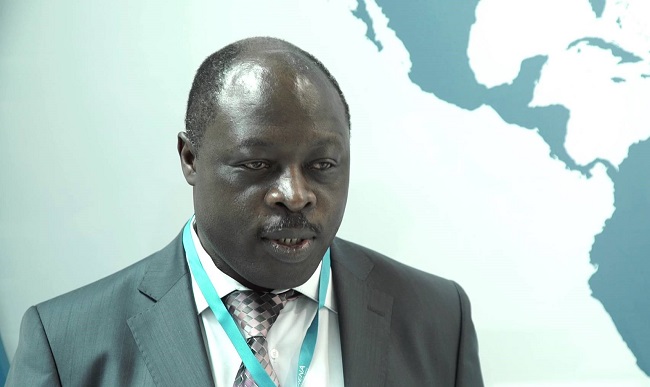The UN on Tuesday, September 4, 2018 called for better utilisation of Africa’s water-energy nexus to harness the continent’s resources towards sustainable development.

The UN Office for Sustainable Development (UNOSD), the UN Economic Commission for Africa (ECA), UN Environment, and the UN Department for Economic and Social Affairs (UN DESA) jointly made the call during a meeting in Ethiopia’s capital, Addis Ababa.
Experts and policymakers gathered at the meeting to discuss mainstreaming and implementing the water-energy for sustainable development in Africa.
Linus Mofor, Senior Environmental Affairs Officer at the ECA, said African countries are already experiencing catastrophic climate change and variability impacts in inter-related ways across many sectors – including water, energy and agriculture.
Mofor further stressed the need to set up integrated approaches in responding to the increasing energy and water demand to enhance livelihoods and sustain economic growth and address the additional pressures on natural resources due to urbanisation and population growth in a continent affected by the changing climate.
“That is why for us at the ECA the nexus work is of high importance, especially in view of how we support our member states with the implementation of their nationally determined contributions to climate change under the framework of the Paris Agreement,” said Mofor.
According to the UN, the 2030 Agenda for Sustainable Development recognises the centrality of energy and water resources to sustainable development, and the vital role that improved access to both water and energy play in advancing progress in other areas, including health, education and poverty eradication.
The UN further stressed that an integrated development of the energy and water policies is of paramount importance and not in isolation from each other.
According to figures from the UN, only 28 percent of the population in Sub Saharan Africa have access to electricity while many African countries are not on track to meet the global drinking water target.
Samba Thiam, Head of the UN Environment Liaison Office to the African Union (AU) Commission, also said that with the increasing demands for water and energy on the continent, it is important for experts to understand their interlinkages.
She als urged them to understand potential water-energy nexus options that can effectively contribute to meeting Africa’s water and energy demands.
“An integrated approach to the water-energy nexus can increase energy efficiency, decrease water pollution, reduce costs of energy and water delivery, increase access to services, and reduce greenhouse gas emissions,” said Thiam.
The three-day meeting, that attracted more than 100 participants from the African Region in Ethiopia’s capital Addis Ababa, discussed Africa’s water and energy targets and indicators, including cross-sectoral mainstreaming.
Participants also discussed the challenges related to the water-energy nexus and possible solutions, and other related issues as the continent seeks to achieve the Sustainable Development Goals (SDGs).
Organisers also expressed their hope to enhance knowledge management and best practices’ sharing on the water-energy nexus and inter-linkages with other SDGs; and strengthening advocacy and outreach in the areas of energy and water and their interlinkages during the next three days.
According to Jong Soo Yoon, Head of the United Nations Office for Sustainable Development (UNSOD), water was the key driver for sustainable development hence the need for such a workshop.
“At the end of the workshop we hope we would have contributed to developing the capacity of governmental institutions and relevant stakeholders in the African region to effectively manage the water-energy nexus and interlinkages with other SDGs for sustainable development to facilitate the implementation of the 2030 Agenda at national level,” he said.
“Integrated approach to water-energy can increase energy efficiency, decrease water pollution, reduce costs of energy and water delivery, increase access to services and reduce greenhouse gas emissions.”
Abraha Adugna, Ethiopia’s State Minister of Water, Irrigation and Electricity, also said during the gathering that water and energy were closely interlinked and interdependent hence water and energy problems should not be addressed in isolation or at the expense of each other.
“It is critical to better understand the water-energy nexus and the driving forces of the water and energy cycles for efficient and sustainable use of these resources,” he said.
He added that to manage both resources, planners and decision makers need to consider ways to maximise the supply of one while minimising the over use of the other.
